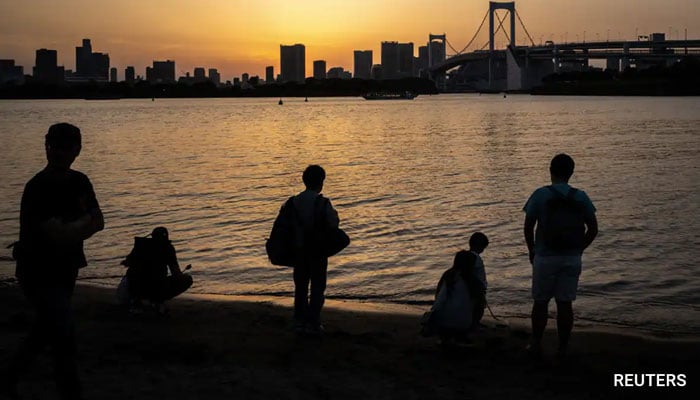Japan records hottest spring in history, blaming global warming
Japan Meteorological Agency revealed that the average temperatures for March, April, and May were 1.59 degrees Celsius
June 02, 2023

Japan recently witnessed its hottest spring on record, according to the national weather agency. The Japan Meteorological Agency revealed that average temperatures during the months of March, April, and May were 1.59 degrees Celsius (34.9 Fahrenheit) higher than the long-term average. This exceptional heatwave marked the warmest spring since the agency began tracking comparable data in 1898.
The agency attributed this unprecedented warmth to the combined effects of greenhouse gases and the El Nino phenomenon, which have been driving temperatures to new heights globally. The rising prevalence of record-level temperatures is a consequence of ongoing global warming and is anticipated to become even more frequent in the future.
In addition to the land temperatures, the agency also highlighted that average sea-surface temperatures around Japan during the same months were among the third-highest recorded since 1982, indicating the widespread impact of the warming trend.
The United Nations recently reported a high probability that the five-year period from 2023 to 2027 will be the warmest ever recorded. This prediction is partly influenced by the increasing likelihood of the El Nino weather pattern developing in the coming months, further exacerbating global temperatures.
The UN's World Meteorological Organisation (WMO) also warned that there is a two-thirds chance that at least one of the next five years will surpass the more ambitious target outlined in the Paris Agreement. This international accord, signed in 2015, aimed to limit global warming to "well below" two degrees Celsius above pre-industrial levels, with a preference for 1.5 degrees Celsius.
Climate scientists have emphasised that the impact of global warming is intensifying adverse weather conditions, such as heavy rain, in Japan and other regions. A warmer atmosphere can hold more water vapour, leading to increased precipitation and a higher risk of extreme events like landslides and floods. Tragic incidents like the devastating 2021 landslide in Atami, which claimed the lives of 27 people, serve as distressing reminders of the heightened vulnerability caused by climate change.
As the current president of the G7, Japan has committed to expediting the phase-out of fossil fuels to mitigate the impact of climate change. However, the recent G7 summit fell short of setting new deadlines for ending polluting power sources like coal, leaving uncertainty regarding the urgency of transitioning to sustainable energy alternatives.











